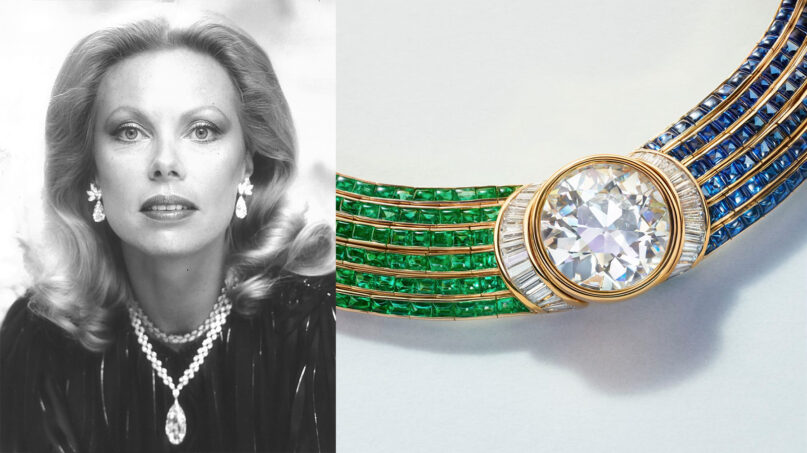(RNS) — Under pressure from Holocaust survivors, Christie’s auction house on Thursday (Aug. 31) canceled a sale of jewelry from the collection of an Austrian heiress whose husband built a fortune at the expense of Jews under the Nazi regime.
A prior sale in May from the collection of Heidi Horten generated a record $202 million from diamonds, emeralds and sapphires but brought intense criticism from Jewish organizations, chiefly the Holocaust Survivors’ Foundation USA.
Horten’s husband, Helmut Horten, a former Nazi Party member, expanded his department store chain at a time when Jewish businesses were forced to sell, and, in some cases, stripped and looted their merchandise as part of the Nazi’s Aryanization campaign. In one case, Horten was reported to have purchased a major textile manufacturer at a discount from its Jewish owner who then fled for his safety.
Helmut Horten died in 1987, leaving his wife nearly a billion dollars. Heidi Horten died last year at age 81. Her jewelry collection is being sold off to help finance a foundation that she created to support medical research and an art museum she founded in Vienna.
Holocaust survivors decried the auction house’s plan for the second sale, saying that Christie’s was profiting from the gains of a Nazi businessman.
“We are appalled that Christie’s is conducting an auction of jewelry from the estate of Heidi Horten, perpetuating a disgraceful pattern of whitewashing Holocaust profiteers, justifying commerce and ‘charity,'” a May 8 letter to Christie’s from the Holocaust Survivors’ Foundation said.
In 2020, Heidi Horten commissioned a historian to investigate her late husband’s wealth. The resulting report concluded that her husband had undoubtedly benefited from the Nazi campaign against the Jews but was not himself necessarily motivated by antisemitism.
Pressure on Christie’s also came from Israel’s official Holocaust memorial, Yad Vashem, which rejected a proposed donation from Christie’s. The Tel Aviv Museum of Art canceled an event on restitution organized by Christie’s that had been scheduled to take place in December.
Auction house officials told The New York Times that none of the jewels for sale had been bought from, or confiscated from, Jews. It was the source of Horten’s wealth that raised Holocaust survivors’ ire.
The auction house declined to answer questions about its decision to cancel the sale, which was scheduled for November in Geneva.
“The sale of the Heidi Horten jewelry collection has provoked intense scrutiny,” Christie’s president, Anthea Peers, said in a statement to The New York Times. “The reaction to it has deeply affected us and many others, and we will continue to reflect on it.”
David Schaecter, president of Holocaust Survivors’ Foundation USA and a survivor himself who lives in Miami, said in a statement: “We are glad that they recognized the great pain additional sales of Horten art and jewelry would cause Holocaust survivors.”





